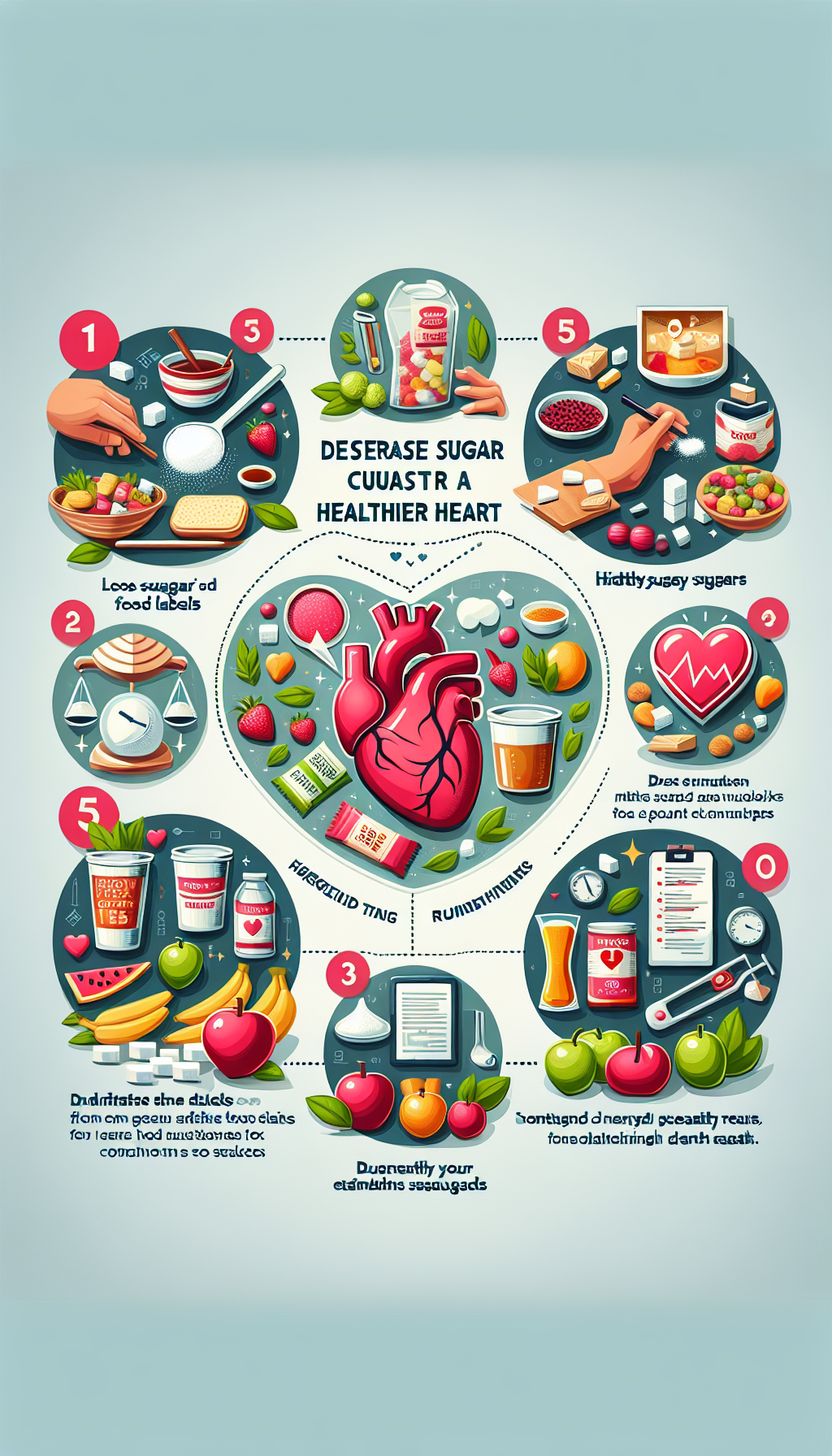Sugar is a staple in many diets around the world, but its excessive consumption is becoming a significant health concern. The sweet substance that seems to make life more enjoyable can also have a bitter impact on our cardiovascular health. This article explores the intricate relationship between sugar intake and heart health, offering insights into how we can foster a healthier lifestyle.
Understanding Sugar and Its Types
Before delving into the effects of sugar on the heart, it is crucial to understand what sugar is and its different types. Sugars are carbohydrates that provide energy to the body, and they come in various forms, including glucose, fructose, and sucrose. While glucose is a direct energy source for our cells, fructose and sucrose, commonly found in processed foods, can have different metabolic effects.
The Heart of the Matter: Sugar’s Role in Cardiovascular Health
Sugar’s effect on the cardiovascular system is multifaceted. Excessive sugar intake can lead to weight gain, inflammation, and high blood pressure, all of which are risk factors for heart disease. Additionally, high sugar consumption can increase triglyceride levels, which may contribute to the hardening of the arteries or atherosclerosis.
Weight Gain and Obesity
Excessive sugar consumption is a well-known cause of obesity, a condition closely linked to heart disease. Sugary foods and beverages tend to be high in calories and low in nutritional value, leading to weight gain when consumed in large quantities. Obesity increases the strain on the heart and can lead to hypertension, a major contributor to cardiovascular issues.
Inflammation
Inflammation is a natural response of the body to injury and infection, but chronic inflammation can harm various body systems, including the heart. Studies have shown that high sugar intake can trigger an inflammatory response in the body, potentially leading to heart disease over time.
Insulin Resistance and Diabetes
Sugar plays a role in insulin resistance, a condition where the body’s cells do not respond effectively to insulin. This can lead to type 2 diabetes, a significant risk factor for cardiovascular disease. High blood sugar levels can cause damage to blood vessels and nerves that control the heart and blood vessels, leading to heart disease complications.
Lipid Dysregulation
Consuming too much sugar can alter the balance of lipids in the bloodstream. It can increase levels of triglycerides, a type of fat found in the blood, while lowering levels of high-density lipoprotein (HDL) or "good" cholesterol. This dysregulation can contribute to the development of cardiovascular disease.
Strategies for Managing Sugar Intake
To protect heart health, it’s essential to manage sugar intake effectively. Here are some strategies to consider:
Read Food Labels
Being aware of the sugar content in foods is the first step to managing intake. Reading food labels can help identify added sugars in products that may not seem sweet, such as bread, condiments, and sauces.
Choose Natural Sugars
Opt for natural sugars found in fruits and vegetables, which come with essential nutrients and fiber. Fiber helps slow down the absorption of sugar, preventing spikes in blood sugar levels.
Limit Processed Foods
Processed foods are often high in added sugars. Limiting their consumption can significantly reduce sugar intake and benefit overall health.
Practice Mindful Eating
Being mindful of eating habits can help manage cravings and reduce the likelihood of consuming sugary snacks and beverages.
The Broader Context: Cardiovascular Health
While managing sugar intake is crucial, it is only one aspect of maintaining cardiovascular health. A multifaceted approach involving regular cardiac screening, balanced nutrition, and lifestyle modifications is necessary. For more comprehensive insights on maintaining heart health, explore the resources available on Cardiovascular Health.
External Resources for Further Information
For those seeking more in-depth knowledge on the subject, the following resources provide valuable information:
- A scientific review on the metabolism of sugars and their impact on cardiovascular health published by the American Heart Association.
- An in-depth article on the role of dietary sugars in the development of lipid abnormalities from a peer-reviewed nutrition journal.
- Research findings on the relationship between sugar intake and inflammation in the context of cardiovascular disease from a leading medical research institute.
Conclusion
Excessive sugar intake poses a significant risk to our cardiovascular health, contributing to obesity, inflammation, insulin resistance, and lipid dysregulation. By understanding the impact of sugar and adopting strategies to manage its consumption, individuals can take proactive steps to protect their heart health. It is also important to consider other aspects of a healthy lifestyle, such as regular exercise, stress management, and comprehensive cardiac care.
Remember, the journey to a healthier heart does not have to be a solo endeavor. Resources such as Effective Stress Reduction Techniques for Heart Health, Understanding the Effects of Hyperlipidemia on Cardiovascular Health, and Heart Healthy Strategies for Weight Management can provide guidance and support along the way.
Taking charge of your sugar intake is a vital step toward a healthier heart and a better quality of life. By staying informed and making mindful choices, we can all beat the odds and pave the way for a heart-healthy future.



